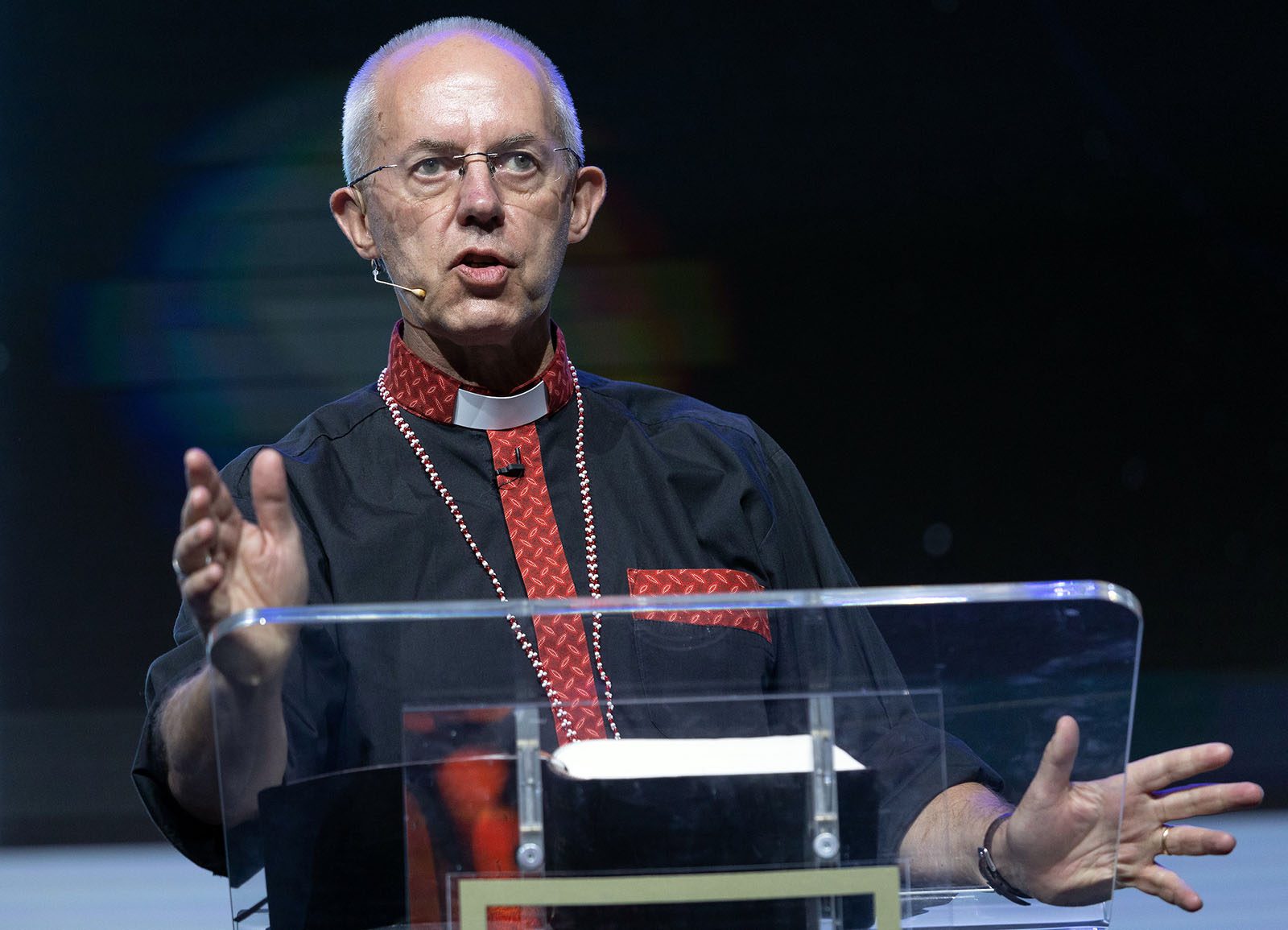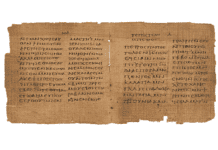Evangelicals, for this reason, refuse to go even as far as blessings. The Church of England Evangelical Council has warned that the proposals will lead to what it calls “broken fellowship” and “a greater tearing of the fabric of the worldwide Anglican Communion” while also “compromising with prevailing culture.”
Earlier this week the CEEC’s director of strategy and operations, Canon John Dunnett, called the proposals a “lose-lose situation,” explaining, “The liberals don’t get what they want, and we have been dragged into a place that we can’t accept.”
General Synod member Jayne Ozanne, a long-standing campaigner for marriage for all, said she could not accept the bishops’ plans as a halfway house and will offer an amendment calling for debate of same-sex unions in the near future. “I myself will not vote for them as I do not want to welcome something that I believe embeds discrimination into the Church of England and treats us as second class citizens,” said Ozanne.

Justin Welby, Archbishop of Canterbury, gives his first keynote address during the 2022 Lambeth Conference, held at The University of Kent in Canterbury, England, Friday, July 29, 2022. Photo by Neil Turner for The Lambeth Conference
But others who support equality are willing to accept the blessings for now. Dr. Charlie Bell, a psychiatrist, Anglican priest and author of the recently published book “Queer Holiness,” urged members of Synod to accept the bishops’ proposals.
“For me this is a clear stepping stone to equal marriage. Is it enough? Absolutely not,” Bell told Religion News Service. “Does it make us second class citizens? Absolutely — but it gives us a seat at the table. We are not going to get to marriage through argument alone — we need to show that the blessings proposed won’t cause the roof to fall in, and will actually enrich the life of the church. Once it becomes normal to bless same-sex couples, it’s only a small step to recognizing that blessing as marriage.”
Beyond the Church of England’s decision looms a broader fight with other churches in the Anglican Communion. Bell wants the church hierarchy, especially Welby, to be more courageous in taking on conservative Anglicans who are not only opposed to same-sex marriage but condemn people for being gay. He described Welby’s decision, for the sake of the Communion, not to carry out same-sex blessings as “an absurd decision.”
“I am sick and tired of hearing about how the entirety of the ‘Global South’ opposes same-sex relationships — this is not even true insofar as the hierarchy is concerned, but it also ignores the lived reality of LGBTQI people in many countries with an Anglican presence that are facing obscene oppression, imprisonment, often violence and in some cases murder,” said Bell.
But Welby may have greater concerns in his own backyard. The 14 MPs who met with Welby for private talks indicated that the issue raised the question of whether a church that rejected the legal status of married people in England could continue to be the established faith. Welby recently said he would rather accept disestablishment than to split the church itself.
Ian Paul, a theologian and vicar who is opposed to marriage reform, said, “The idea that the government should tell a Christian church what its doctrine should be is unprecedented.
“The Church of England is the established church but it has been self-governing since 1919. An intervention like this would be implausible, provoking a constitutional crisis,” he said.
This article originally appeared here.











